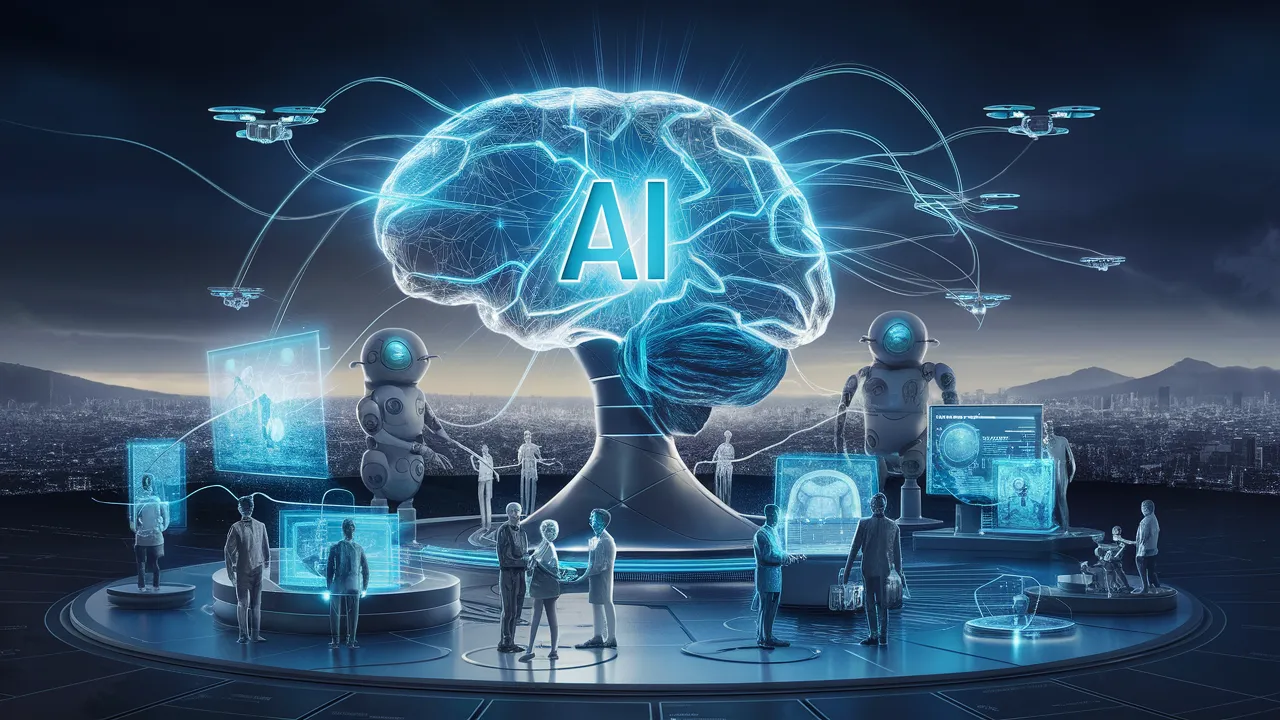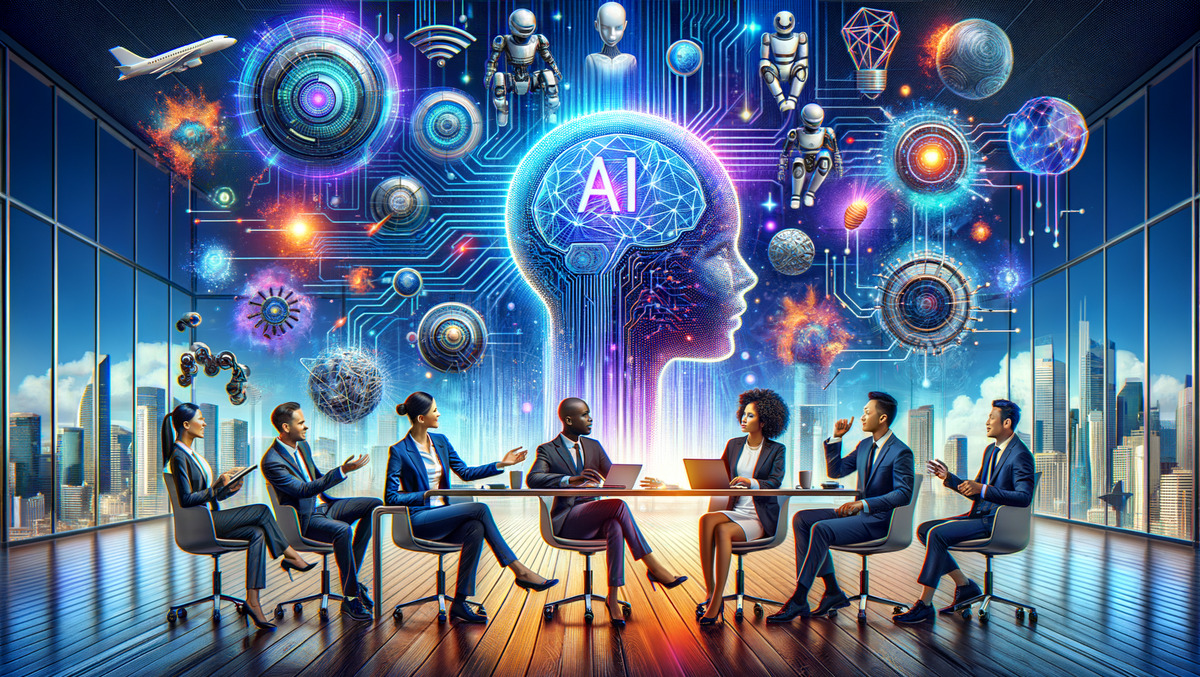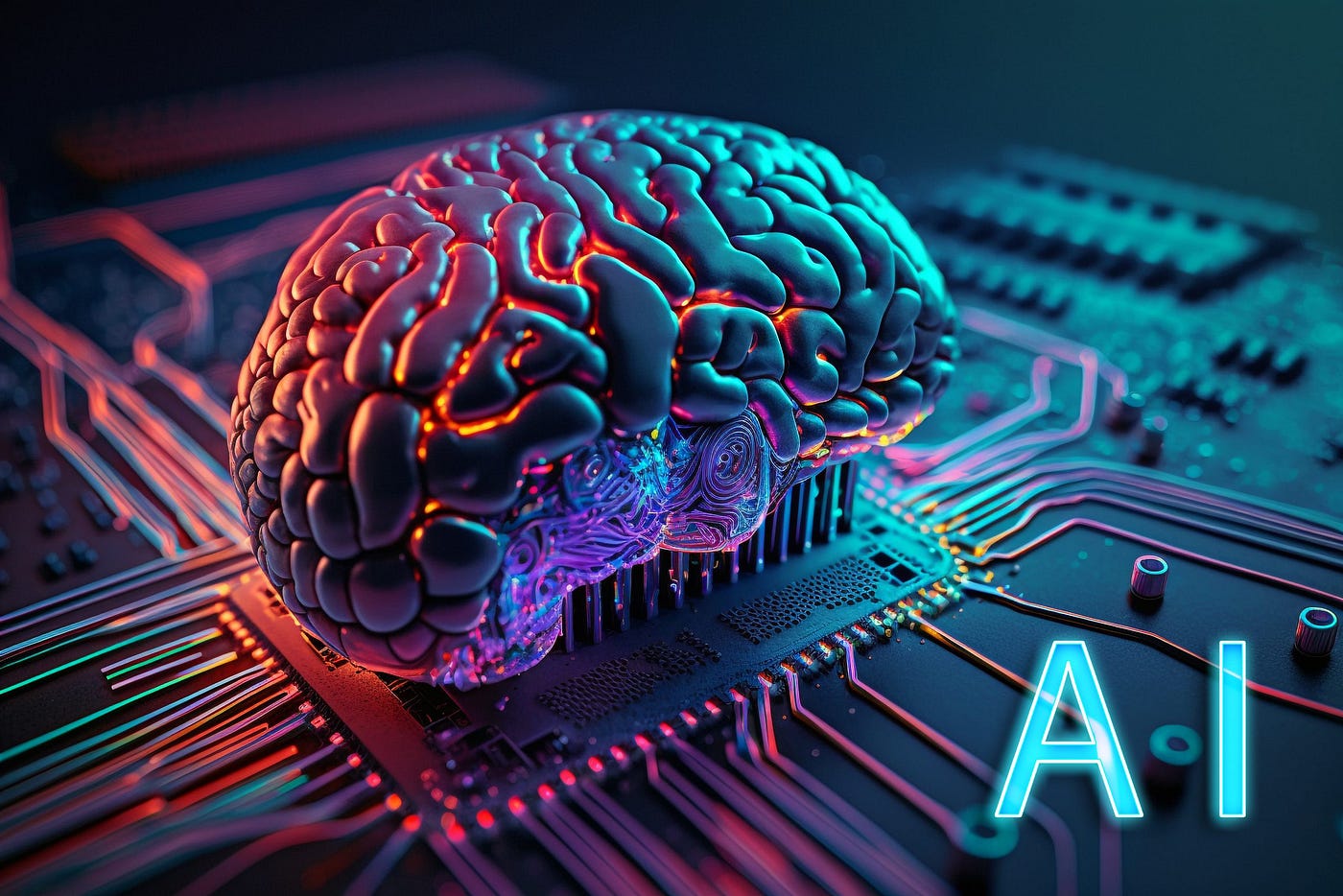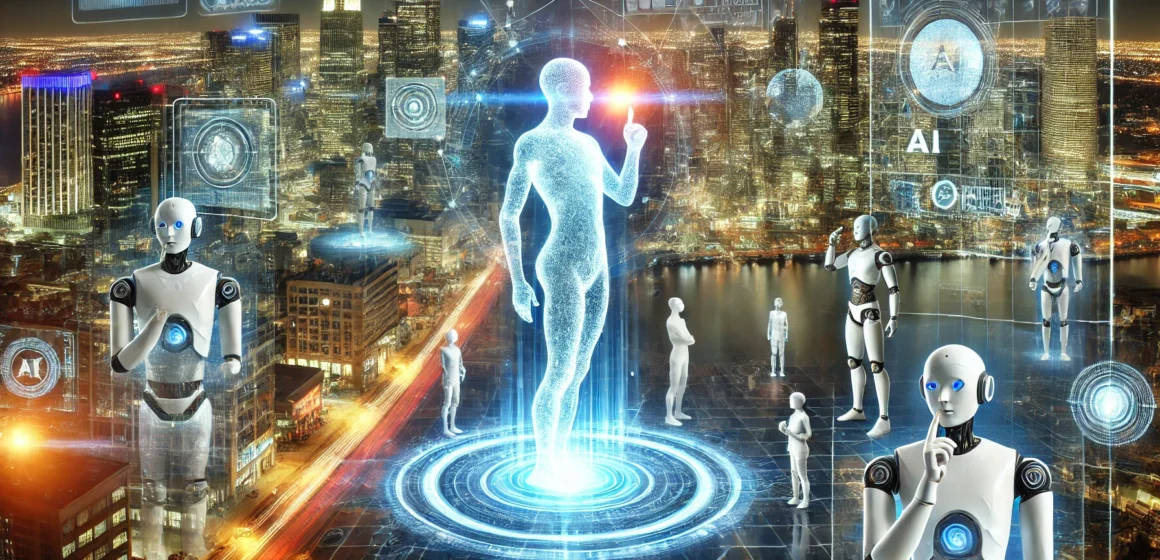The Future of AI and Its Impact on Humanity
Artificial Intelligence (AI) has emerged as one of the most transformative technologies of the 21st century. From automating routine tasks to making groundbreaking advancements in medicine, finance, and communication, AI is revolutionizing nearly every aspect of human life. However, with great potential comes great responsibility, as AI also raises ethical, economic, and existential concerns.
As we look to the future, the question remains: will AI enhance our lives or pose unforeseen challenges? This article explores the future of AI, its potential benefits, risks, and the profound impact it will have on humanity.

The Evolution of AI: Where We Are Today
AI has made significant progress in recent years. Machine learning, deep learning, and natural language processing (NLP) have enabled AI systems to analyze massive amounts of data, recognize patterns, and make decisions with human-like intelligence. Some of the most notable advancements in AI today include:
- Chatbots and Virtual Assistants – AI-powered assistants like ChatGPT, Siri, and Alexa can engage in conversations, answer questions, and assist with daily tasks.
- Healthcare Innovations – AI is being used to diagnose diseases, develop personalized treatments, and even perform robotic surgeries.
- Autonomous Vehicles – Self-driving cars are being developed to reduce accidents and improve transportation efficiency.
- AI in Business and Finance – AI-driven algorithms help in stock trading, fraud detection, and customer service automation.
- Creative AI – AI-generated art, music, and literature are pushing the boundaries of human creativity.
While these advancements are impressive, the future of AI holds even greater possibilities—and challenges.

How AI Will Transform Different Industries
1. Healthcare and Medicine
AI is set to revolutionize healthcare by improving diagnosis accuracy, speeding up drug discovery, and enhancing patient care. AI-driven imaging tools can detect diseases like cancer at early stages, while robotic surgeries are expected to become more precise. Additionally, AI can personalize treatment plans based on genetic and lifestyle factors, leading to better healthcare outcomes.
2. Education and Learning
AI-driven education platforms are making learning more accessible and personalized. Adaptive learning systems can tailor educational content to individual students, addressing their strengths and weaknesses. AI-powered tutors can assist students in real time, making education more interactive and effective.
3. Business and Workforce Automation
AI is reshaping the workforce by automating repetitive tasks, improving efficiency, and enhancing decision-making. AI-driven chatbots and virtual assistants are streamlining customer service, while AI-powered data analytics help businesses make informed strategic decisions. However, this automation raises concerns about job displacement and the need for reskilling workers.
4. Transportation and Smart Cities
Autonomous vehicles, smart traffic management systems, and AI-driven logistics are set to revolutionize urban life. Self-driving cars could reduce accidents, optimize fuel efficiency, and reshape public transportation. AI will also play a crucial role in creating smart cities with improved infrastructure, energy management, and public services.
5. Entertainment and Creativity
AI is already making waves in the creative industry by generating music, art, and even movie scripts. AI-driven platforms can analyze audience preferences and create personalized content recommendations. However, questions about originality and intellectual property rights remain a topic of debate.
The Ethical and Social Implications of AI
While AI presents exciting opportunities, it also raises ethical and social concerns that must be addressed:
1. Job Displacement and Economic Inequality
AI and automation are expected to replace many traditional jobs, particularly in manufacturing, customer service, and administrative roles. While AI will create new job opportunities, the transition may lead to economic disruptions and widen the gap between skilled and unskilled workers. Governments and organizations must invest in reskilling programs to prepare the workforce for an AI-driven future.
2. Bias and Fairness in AI
AI algorithms are only as unbiased as the data they are trained on. If AI systems are fed biased data, they can perpetuate discrimination in hiring, law enforcement, and financial services. Ensuring fairness and transparency in AI decision-making is crucial to preventing unintended harm.
3. Privacy and Surveillance
AI-powered surveillance systems can enhance security, but they also raise concerns about privacy and civil liberties. Governments and corporations must establish clear regulations to prevent misuse and protect individuals’ privacy rights.
4. AI in Warfare and Autonomous Weapons
The development of AI-powered weapons and military applications poses significant risks. Autonomous drones and AI-driven combat systems could lead to conflicts with minimal human intervention. Ethical guidelines and international agreements are needed to regulate AI in warfare and prevent unintended consequences.
5. The Rise of Superintelligent AI
Some experts warn about the risks of developing superintelligent AI—machines that surpass human intelligence. If AI becomes capable of making decisions independently, it could challenge human control. Scientists and ethicists emphasize the need for safeguards to ensure AI remains aligned with human values and does not pose existential threats.
How Humanity Can Shape the Future of AI

As AI continues to evolve, it is crucial for humanity to guide its development in a way that benefits society. Here are some key steps that governments, organizations, and individuals can take:
- Establish Ethical AI Guidelines – Governments and tech companies must create policies that ensure AI is used responsibly, with transparency and fairness in decision-making.
- Invest in AI Education and Reskilling – Educational institutions should prepare future generations for an AI-driven workforce by emphasizing critical thinking, creativity, and technological skills.
- Enhance AI Security and Privacy Protections – Strong cybersecurity measures must be implemented to protect user data and prevent AI systems from being exploited.
- Promote International AI Regulations – Countries must collaborate on setting global standards for AI governance, particularly in areas like military applications and data ethics.
- Encourage AI for Social Good – AI should be leveraged to solve global challenges such as climate change, poverty, and healthcare accessibility.
Conclusion: A Balanced Approach to AI’s Future
AI has the potential to bring about a future of unprecedented progress, improving healthcare, education, and innovation. However, it also presents ethical, social, and economic challenges that cannot be ignored. The key to a successful AI-driven future lies in a balanced approach—one that embraces innovation while ensuring human oversight, fairness, and accountability.
By making thoughtful decisions today, humanity can shape AI into a tool for empowerment rather than a source of disruption. The future of AI is in our hands, and it is up to us to guide its development for the betterment of society.


Leave a Reply